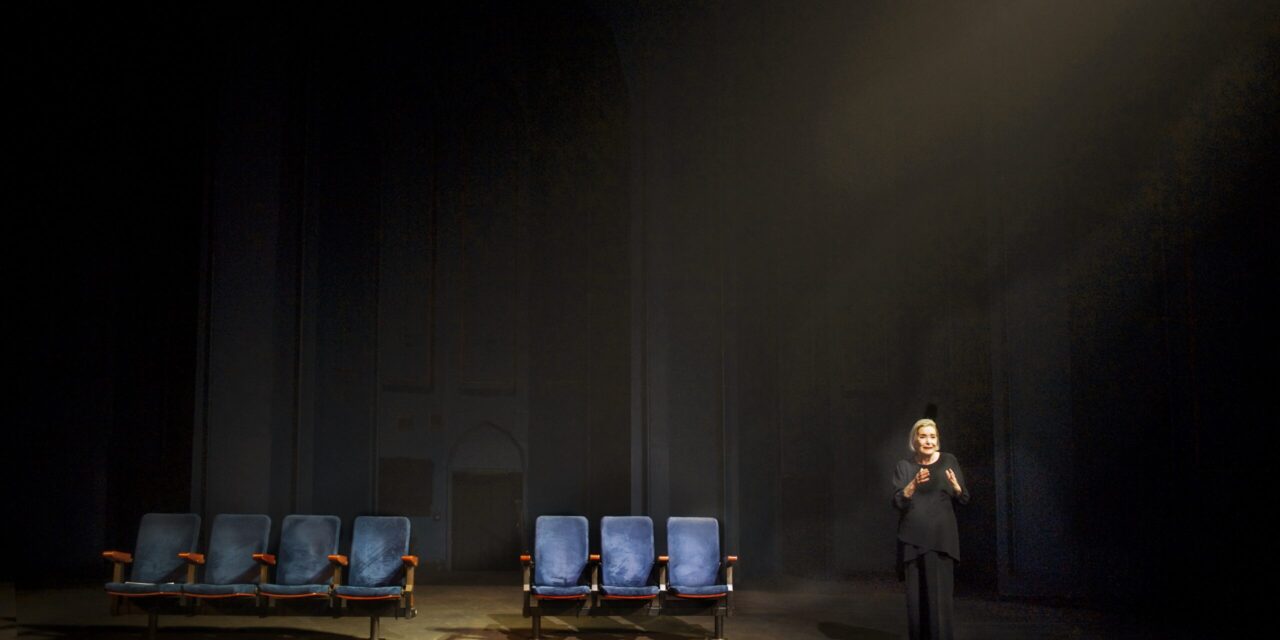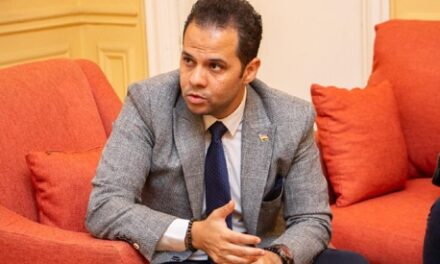There was a moment on April 7th when the vision for culture in Spain under Covid-19 looked pretty bleak. While a series of streaming options were offering salvation to a nation under lockdown since March 14th, the Spanish government was disappointingly refusing to accept the fact that the cultural sector was facing a particularly grim prospect with the shutdown of all live theatre and musical performance as well as the suspension of film and television shoots. The government’s position seemed to be that culture deserved no differential package —a refusal to recognize how culture operates or the contribution that the arts were providing to the wider population in lockdown. In his statement that “the moment to boost and reboost culture and sport will come,” Spain’s Minister of Culture and Sport José Manuel Rodríguez Uribes was effectively shooing away any advocacy for the sector he ostensibly represents. Quoting Orson Welles, he went on to justify his decision with the words, “Life first, then cinema.”
It was a response that was to galvanize the sector. Forty-one cultural associations, representing 700,000 cultural workers raised the need for sector-specific measures; the actors’ union asked for a cultural apagón (“switch off”) on April 10th and 11th across all social media to ensure the government recognized the important role culture was playing within the nation at this time; actor Juan Echanove posted a video on April 10th decrying that Uribes was “no longer my Minister of Culture,” and Lluís Pasqual, one of Spain’s most renowned stage directors, sent an open letter to the Minster that was picked up across media outlets and referenced by Pedro Almodóvar in the fourth installment of his Madrid lockdown diary published in El Diario—Almodóvar has been posting regular updates, also translated into English and published in Sight & Sound, since March 30th. The response of the cultural sector from the moment Uribes made his public declarations generated a shift in the Government’s position. The Finance Minister and Government spokesperson, María Jesús Montero, announced on April 10th that representatives of the cultural sector would be meeting the Minister of Culture to discuss the way forward. By the 17th April, Montero and Uribes were pronouncing that within 10 days culture-specific measures would be announced to assist in protecting the sector at this unprecedented time. Data from the Spain Film Commission shows that over 300 film shoots have ground to a halt. Spain’s cultural industries are responsible for 2.4% of Spain’s GDP; statistics from the Spanish Ministry of Culture and Sport indicates 625 million euros generated by cinema in 2019—94 million of these from Spanish films. As one journalist noted in her coverage of the impact of the lockdown, not even during the Spanish Civil War, as bombs fell, did the theatres close; the impact on a sector that brought in 160 million euros in relation to theatre alone during 2019 was underestimated by the one person who should have been seeking to protect culture and advocate for the role it was playing in providing entertainment, stimulation, and engagement for a nation in lockdown.
Pedro Almódovar lockdown diary, first published in Spanish on 11 April (translated by Mar Diestro-Dópido and reproduced here with the permission of the director) contrasted the Spanish Government’s problematic response to cultural aid with that of other European leaders:
Let me quote a tweet that my brother posted two days ago comparing the Spanish, French and German reactions to the economic disaster that the coronavirus spells for the culture industry. The Spanish Minister of Culture confirmed on Monday that there won’t be any specific measures for the sector. In other words, zero help, and he did not turn a hair when interested parties expressed their astonishment.
On the other hand, the French government mobilises to defend the nation’s culture in the face of coronavirus. The Ministry of Culture will allocate €22 million to support the cultural sector.
Germany includes culture in their ‘basic needs’. The culture industry will be able to access the unlimited financial assistance planned by Angela Merkel’s government.
Three very different, very eloquent reactions. In a letter to the Ministry of Culture, the prestigious theatre director Lluís Pasqual starts by asserting that this country does not love its artists. You can admire them, envy them, and even in some cases adore them; but loving them is another thing. And he is completely right. The letter is a long, detailed reproach of the historical defencelessness of culture workers and the Ministry of the same name, which only on rare occasions has represented us.
When one of the changes made by Pedro Sánchez’s new government ousted José Guirao (the previous minister of culture and one of the best cultural managers we’ve had in the last 40 years—politically independent, but with enormous experience in culture), I felt his exclusion as a great loss that reality has only served to confirm. The appointment of Mr Rodríguez Uribes is political. He is a party man, as the expression goes, and he could have been given any other department.
In our 40 years of democracy, we have not been lucky with the Ministry of Culture. I remember only minister Carmen Alborch (1993-96) and José Guirao, the latter of who had to deal with those interim months when he did what he could. Regardless of ideological stance, our country has never had the political will to help the cultural sector.
Lluís Pasqual’s letter is here published in English for the first time (translated by Cecilia Sosa, Duncan Wheeler, and Maria Delgado); a letter that formed part of a sector-wide movement to shake the Minister of Culture out of a position of cultural lethargy and to remind the Government that protecting culture aids with social cohesion, with a sense of identity and wellbeing; that it assists in understanding the past, making sense of the present and preparing for the future. While the Churchill quote Pasqual deploys was shown in 2009 to be apocryphal, originating in a Village Voice piece, its sentiments were articulated by Churchill in 1938: “The arts are essential to any complete national life. The State owes it to itself to sustain and encourage them.” Culture isn’t a disposable extra; it is a way of thinking through who we are and what we do. It is a way of comprehending what it means to be human.
April 10, 2020
Sir, The Minister of Culture of the Government of Spain:
Years ago, I made a public statement, which it pains me to say I still stick by, that has haunted me ever since: this country does not love its artists. It can admire them, envy them and, even, in some cases, adore them; but loving them is something else. If even the slightest shadow of doubt remained over that bitter conviction, your intervention—which I have seen and heard repeatedly with disbelief and astonishment, hoping it was “fake”—has dispelled it for good.
Since 1975, the moment when, between pretty much all of us, we embarked on a mission to make this country a democracy, I have never, I repeat, NEVER, felt more unjustly and undeservedly rejected by a cultural public servant. And I am just one of thousands and thousands of colleagues, many of whom have through their art (poetry, music, cinema, theatre precariously broadcast, humour…) become a refuge for millions of Spaniards, a way of alleviating this dramatic situation and keeping the wolf of despair, a veritable antechamber to madness, at the door.
Human beings invented art and shared it with their fellow humans in a transmission that we have called Culture, in order to feed and ennoble the spirit beyond our physical and biological avatars. This, together with the ability to imagine, the creation of language and laughter, is what distinguishes us from animals. And the human race, in its brightest or darkest times, has encouraged the Arts by considering them worthy and necessary, useful even. At given moments, the rich tapestry weaved by the Arts has even played a role in the indisputable advances of humanity itself.
But this is not about demanding to be loved. This is not something to demand, rather perhaps to be offered and shared. This is about demanding justice. Your idiosyncratic intervention betrays total ignorance of the working conditions of artists (yes, this is also a job for which the livelihood of hundreds of thousands of people and their families depend) who are completely beholden to your thoughts and action. Ignorance is understandable and human, but not when coming from a Minister who is supposed to be the guarantor of a numerically significant section of the Spanish population and, as such, of a living and fundamental heritage.
I am not going to repeat here what many people and media outlets have already reminded you of: how many persons we are, what our role in society is, the percentage of GDP we represent, or what the mechanisms, labour and contractual conditions that govern our precarious sector are. I hope you have advisers who can inform you of a reality from which it is immediately possible to deduce that, we are, precisely, not TRANSVERSAL. We are not now nor have we ever been. Not even that. You need to look no further than the General State Budget to see the ridiculous portion attributed to Culture, always allocated on the basis of the minimum required, and also subject(ed) to sudden and unannounced cuts by the omnipotent Public Treasury administrated with a brazenness no other sector would put up with.
In any conflict or difficult collective situation, such as the one we are currently experiencing, the first casualty is always the truth. And either nobody has told you the truth or you haven’t wanted to discover it. I’m not sure which is worse.
All the people who fight (in Spain this is, unfortunately, the most appropriate choice of verb) for Culture who, officially fall under your duty of care, were already on the brink of needing the services of the Intensive Care Unit before the outbreak of the Coronavirus crisis. On the day this nightmare passes, if you have not made—and this means now, we are already running behind here—an urgent 180-degree turn, you will find nothing alive. Cultural Spain – with venues closed; festivals, programs and film shoots suspended; artists abandoned with no future—this is the panorama facing you now.
Of course, we are facing a Health Crisis and the number-one priority, above and beyond everything else, is saving lives. By now, we all know this and nobody disputes it. That is why millions of us lucky people are in confinement exercising a sometimes exemplary obedience and solidarity. But just as other Ministries are envisaging—as best they can—alternative futures, be these possible, probable or simply desired, the obligation of the Ministry of Culture is to do the same.
As in the case of the worst tsunami, an unavoidable Cultural Emergency has occurred in the space of just a few days, and it falls to the State to take the initiative. Some of your European colleagues, with whom you claim to have spoken, have done just this. I suspect that nothing positive has come from those conversations for us, when compared to the measures that other ministers and countries have taken, transforming the protection of Culture into a matter of State.
I am not complaining. Complaints can also have a miserable side. What I write, I am demanding in the name of justice, good sense and pragmatism, and from experience and knowledge that I put at your disposal should you require them.
And since you have selectively quoted Orson Welles (who—in case you don’t know it while making that statement, continued filming … and yes, we artists are contradictory), let me remind you of a few words from Winston Churchill. Perhaps they might prove to be more useful when it comes to reflecting on the consequences of your words and actions. At the height of the Second War World, faced with a lack of funds for supplying the British Army, an emergency Cabinet meeting was called with the aim of cutting spending in specific areas which could then be transferred to the Ministry of War. Someone made the suggestion that a substantial cut could be made to Culture or even that the Cultural budget could be temporarily suspended in its entirety. To which, Churchill angrily replied: “If we sacrifice our Culture, then what are we fighting for?” I leave you with that thought.
Yours faithfully
Lluís Pasqual
This post was written by the author in their personal capacity.The opinions expressed in this article are the author’s own and do not reflect the view of The Theatre Times, their staff or collaborators.
This post was written by Maria Delgado.
The views expressed here belong to the author and do not necessarily reflect our views and opinions.

















